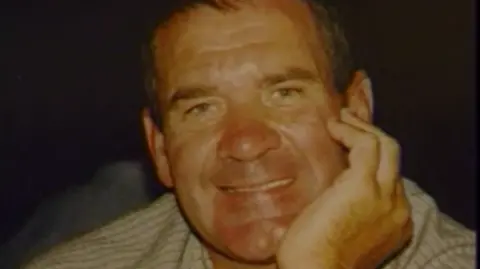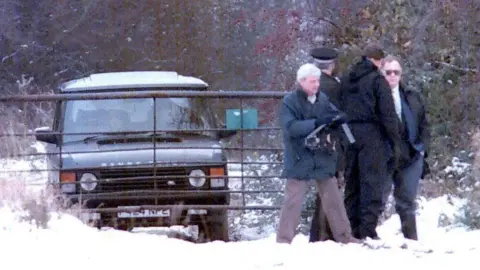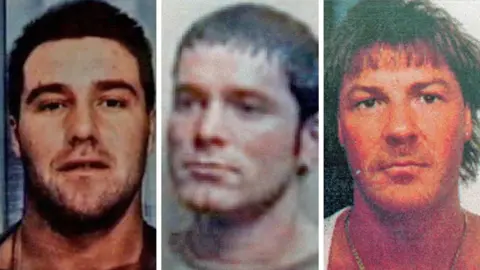Essex Boys killer to be freed despite release row
 Supplied
SuppliedA killer convicted of the so-called Essex Boys murders will be released from prison despite government efforts to block the move.
Michael Steele was given a life sentence for the gangland shootings of Craig Rolfe, Tony Tucker and Pat Tate in Rettendon, near Chelmsford, in 1995.
The 82-year-old was cleared for release by the Parole Board in February, but Justice Secretary Shabana Mahmood appealed against the decision last month.
A Parole Board spokesman said Mahmood's reconsideration application had been refused.
"Parole reviews are undertaken thoroughly and with extreme care. Protecting the public is our number one priority," he added.
Steele, who previously lived in Great Bentley near Colchester, has repeatedly denied perpetrating the murders.
 Sky Documentaries
Sky DocumentariesThe case gained international attention and was immortalised in the 2000 film Essex Boys, which starred Sean Bean and coined the name.
Making its decision in February, the Parole Board said Steele's imprisonment was "no longer necessary for the protection of the public".
He was locked up alongside Jack Whomes, who was released from prison in 2021.
The victims were gunned down having been ambushed as they sat in a Range Rover on a farmer's track.
Then aged 55, Steele was found guilty of murder and conspiring to import drugs into the UK.
His minimum prison term was set at 23 years, which expired in 2019, but the Parole Board had been worried about his risk of reoffending.
In its report published in February, the panel said: "Mr Steele had offended for financial gain and out of greed.
"He had sought to maintain a level of status or respect from others by exerting power.
"There had also been an element of thrill-seeking in his actions."
However, it noted his behaviour in prison had shown a "marked improvement" and a psychologist commissioned by his legal team told the panel the risk levels of release were "minimal".
 PA Media
PA MediaSteele must surrender his passport and cannot own a boat, airplane or firearm as part of his licence conditions.
He must also reside at a designated address and could be subject to electronic tagging and a curfew.
Lawyers for both Steele and Whomes made unsuccessful attempts to overturn their convictions at the Court of Appeal in 2006, 2013 and 2016.
The BBC has revealed the Criminal Cases Review Commission - an independent body sponsored by the Ministry of Justice - has been reviewing their convictions again.
Essex Police previously said the case was "exhaustively examined" and there was no fresh evidence to dispute the original verdicts.
Follow Essex news on BBC Sounds, Facebook, Instagram and X.
